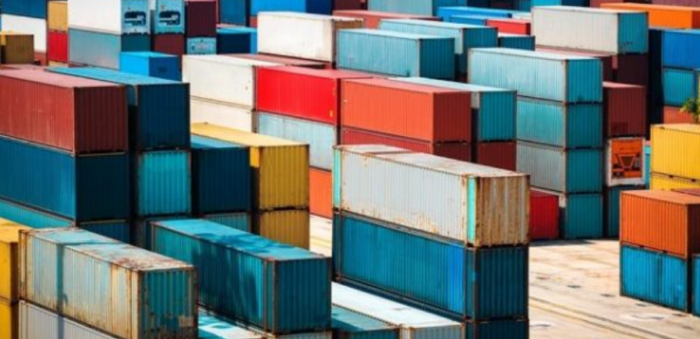In its latest review of maritime transport, UNCTAD warns that global consumer prices will rise significantly in the year ahead until shipping supply chain disruptions are unblocked and port constraints and terminal inefficiencies are tackled.
More specifically, UNCTAD notes that the recovery of the global economy is threatened by high freight rates, which are likely to continue in the coming months.
In fact, UNCTAD’s analysis shows that the current surge in container freight rates, if sustained, could increase global import price levels by 11% and consumer price levels by 1.5% between now and 2023.
The current surge in freight rates will have a profound impact on trade and undermine socioeconomic recovery, especially in developing countries, until maritime shipping operations return to normal
said UNCTAD Secretary General Rebeca Grynspan.
What is the cause of the spike in freight rates
Demand for goods increased in the second half of 2020 and into 2021, as consumers spent their money on goods and not services during pandemic lockdowns and restrictions.
This was exacerbated due to working from home, online shopping and increased computers sales, whichl placed unprecedented demand on supply chains.
As a result, this large swing in containerized trade flows was met with supply-side capacity constraints, including container ship carrying capacity, container shortages, labour shortages, continued on and off COVID-19 restrictions across port regions and congestion at ports.
Thus, this mismatch between surging demand and de facto reduced supply capacity led to record container freight rates on practically all container trade routes.
Everyone is affected
The impact of the high freight charges will be greater in small island developing states (SIDS), which could see import prices increase by 24% and consumer prices by 7.5%. In least developed countries (LDCs), consumer price levels could increase by 2.2%.
In addition, concerns abound that the sustained higher shipping costs will not only weigh on exports and imports but could also undermine a recovery in global manufacturing.
What is more, the report says that sustained high rates are already affecting global supply chains, noting that Europe, for example, has been facing shortages of consumer goods imported from Asia such as home furnishings, bicycles, sports goods and toys.
Now the report expects a surge in container freight rates to add to production costs, which can raise consumer prices and slow national economies.
The high rates will also impact on low-value-added items such as furniture, textiles, clothing and leather products, whose production is often fragmented across low-wage economies well away from major consumer markets
the UNCTAD analysis says, also predicting a 9.4% increase in rubber and plastic products, a 7.5% increase for pharmaceutical products and electrical equipment, 6.9% for motor vehicles and 6.4% for machinery and equipment.
However, the impact of the high freight rates will not be evenly spread. It is suggested that prices would rise by 3.7% in Estonia and 3.9% in Lithuania, compared with 1.2% in the United States and 1.4% in China.
Moreover, transport costs are also influenced by structural factors, including port infrastructure quality, the trade facilitation environment and shipping connectivity, and there is potential for significant improvements.
Addressing high freight rates
In order to cope with high freight rates UNCTAD calls countries to consider a portfolio of measures that span hard and soft infrastructure and services. Namely, improving the quality of port infrastructure would reduce world average maritime transport costs by 4.1%, while costs would be reduced by 3.7% by better trade facilitation measures and by 4.4% by improved liner shipping connectivity.
It also urges governments to monitor markets to ensure a fair, transparent and competitive commercial environment and recommends more data sharing and stronger collaboration between stakeholders in the maritime supply chain.
Continuing, UNCTA highlights that continued monitoring and analysis of trends will find ways of cutting costs, by enhancing efficiency and smoothing delivery of maritime trade. It also emphasizes the need for smaller economies to diversify by graduating to higher-value-added products to be more resilient to external shocks.
In the medium to longer term, the maritime supply capacity will also be affected by the transition of the industry towards zero-carbon shipping. To ensure that the necessary investment in ships, ports and the provision of new fuels is not delayed, it will be important for investors to count on a predictable global regulatory framework
UNCTAD concludes.




























































